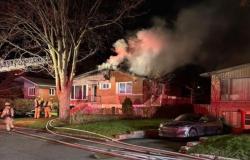Summary & Quick Access
Toggle
While winter is coming to an end, energy professionals carefully observe the signals sent by gas markets. In Auvergne-Rhône-Alpes as elsewhere, tensions on storage levels and new regulatory measures linked to biogas come to redistribute the cards. Alliance of energies, recognized player in energy brokerage for businesses, alerts a probable rise in prices in the coming months, with repercussions to be expected on the budgets of regional economic actors.
A seasonal cycle amplified by geopolitics
Each year, the gas markets experience a relatively predictable cycle. At the end of winter, storage levels are naturally lower, which often causes short -term prices to relax. But as early as March, operators relaunch the filling campaigns for the following winter. This gradual recovery of demand pushes prices upwards until summer. For 2025, this dynamic promises to be more pronounced than usually, due to a more rigorous winter than expected in certain European areas and persistent uncertainty on international supply flows.
According to the latest observations relayed by Energy Alliance, gas prices are currently evolving in a range between 25 and 35 €/MWh. It is a level significantly lower than the peaks recorded during the energy crisis of 2022, but also very far from the historically low values of 2020, where we were approaching the € 15/MWh in full pandemic. This configuration encourages experts to recommend increased vigilance, especially for companies strongly exposed to the volatility of energy markets.
A new regulatory deal around biogas
Beyond purely cyclical phenomena, a structural change will gradually modify the national and regional energy landscape: the introduction of a compulsory financing mechanism for biogas projects. As of 2026, each energy supplier must contribute financially to these projects, in proportion to the volume of its tertiary customers.
This system, intended to promote the energy transition and to support the renewable gas sector, will mechanically result in an increase in prices billed to consumers. The projections are already known: +0.41 €/MWh in 2026, +1.82 €/MWh in 2027 and +4.15 €/MWh in 2028. For many companies, this represents an increasing charge to integrate now in their energy purchasing strategy.
This evolution directly concerns the economic actors of Auvergne-Rhône-Alpes, a region where many industries, communities and health establishments are still partially dependent on gas for their heating or production needs. Tertiary customers, often considered more flexible, are also concerned, including buildings, hotel groups, shopping centers and higher education establishments.
Anticipate to secure your energy budget
In this context, Energy Alliance recommends that its customers not wait until the end of the year to position themselves on the 2026–2028 contracts. The company, which has among its customers many professionals in Auvergne-Rhône-Alpes, already observes an increase in requests for analysis and pricing coverage over the coming years. The objective: to lock a competitive price today, before the regulatory dynamics and market adjustments make the exercise more expensive.
For Didier Maingault, Deputy Managing Director of Energy Alliance, it is essential that companies change posture: “The time when we could wait for the last minute to sign a contract is over. Between the volatility of the gas, the indirect impact on electricity, and the new taxes linked to the energy transition, it becomes essential to have a strategy over several years. »»
This need for anticipation is particularly marked among industrial SMEs, which do not always have internal resources to follow the daily energy markets. Hence the importance of brokers and specialized advisers, capable of deciphering regulatory developments and identifying the most favorable opportunity windows.
Cascade effects on electricity and competitiveness
The expected increase in gas -related costs does not only concern companies directly consuming. It will also have an indirect effect on the price of electricity, due to the operating mode of the European market. In times of high demand, gas thermal power plants are requested to balance the network, which sets a marginal price often higher than the average of other means of production.
This interdependence between gas and electricity complicates reading trends, but above all reinforces the need for a global vision of energy purchases. For companies in Auvergne-Rhône-Alpes, which evolve in a highly exporting economic fabric, a poor anticipation of prices can quickly result in a loss of competitiveness on international markets.
The most exposed sectors are well identified: agrifood, plastics, metallurgy, chemistry, logistics … so many strengths present in force in the region, and for which the cost of energy represents a significant part of the operating charges. Some companies have already started investments in alternative solutions: fatal heat, biomass, solar thermal or even demand control systems.
Towards a finer and more decarbon contractualization
Energy contracts are also evolving. The time of standardized fixed prices gives way to tailor-made contracts, indexed on spot prices or incorporating dynamic coverage clauses. Alliance of energies supports this transfer by developing specific analysis tools, in connection with the actual consumption of customers, their risk profile and their exposure to regulatory obligations.
In parallel, demand for greener energy is progressing, including professionals. The use of biomethane, guarantees of origin or 100 % renewable offers becomes a criterion of choice for more and more economic players, especially in public tenders or CSR procedures. But then again, this transition implies a fine understanding of the markets and financing mechanisms that are being set up.
The arrival of the Biogaz support mechanism is a pivotal step: it introduces an obligation of result for suppliers, while redistributing the cost of the transition over all customers. For professionals, this means that passivity on the energy subject could result in a loss of progressive budgetary control.
A strategic issue for the regional territory
In Auvergne-Rhône-Alpes, industrial and pioneer region on the energy transition, these developments resonate strongly. Several structuring projects around biogas, hydrogen or storage are underway, carried by communities, energy unions and innovative companies. The interconnection between local production, controlled consumption and price resilience becomes a strategic issue.
The companies that have today to better understand and manage their energy consumption will have a sustainable competitive advantage. Conversely, those that underestimate the impact of regulation or markets are likely to undergo the upcoming increases without room for maneuver.







